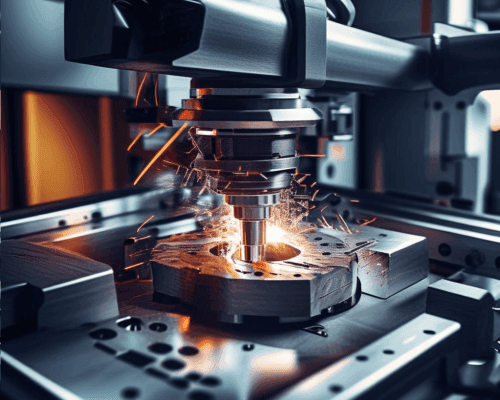In CNC machining, choosing the right material is critical to ensuring the quality, performance, and cost-effectiveness of the final product. Here is a guide to some key factors and common materials to help you make an informed choice.
1. Determine project requirements
Mechanical performance requirements: Consider the stress, strain, and load that the part needs to withstand.
Heat and chemical resistance: Select materials based on the environment in which the part will be used.
Cost-effectiveness: Evaluate the balance between material cost and performance.
2. Common CNC machining materials
Aluminum CNC machining: Lightweight, high strength, good thermal conductivity and corrosion resistance, suitable for electronic and automotive parts
Stainless steel CNC machining: Corrosion resistance, high strength, suitable for medical and food processing equipment
Brass CNC machining: Good machinability, suitable for decorative items and plumbing fixtures
Titanium CNC machining: High strength-to-weight ratio, corrosion resistance, biocompatibility, suitable for medical implants and aerospace parts
Plastics (such as ABS, nylon, acrylic): Versatile, affordable, easy to process, suitable for a variety of consumer products and industrial parts
3. Material Machinability
Machinability: Choosing materials that are easy to machine can reduce machining time and costs.
Hardness: The hardness of the material affects tool wear and the choice of machining parameters.
4. Cost Considerations
Material Cost: Evaluate the price of different materials and their impact on the project budget.
Machining Cost: Some materials can be difficult to machine, which can increase machining costs.
5. Environment and Sustainability
Recyclability: Choosing recyclable materials can help reduce environmental impact.
Durability: Durable materials can reduce the frequency of CNC machining part replacement and improve environmental benefits.
6. Compatibility
Compatibility with other materials: Make sure the selected material is compatible with other components or materials in the product.
7. Professional Advice from Suppliers
Work with an experienced CNC machining supplier who can provide professional advice to help you choose the most appropriate material.
By considering these factors together, you can ensure that you choose the right material for your CNC machining project to achieve the best performance and cost-effectiveness.

